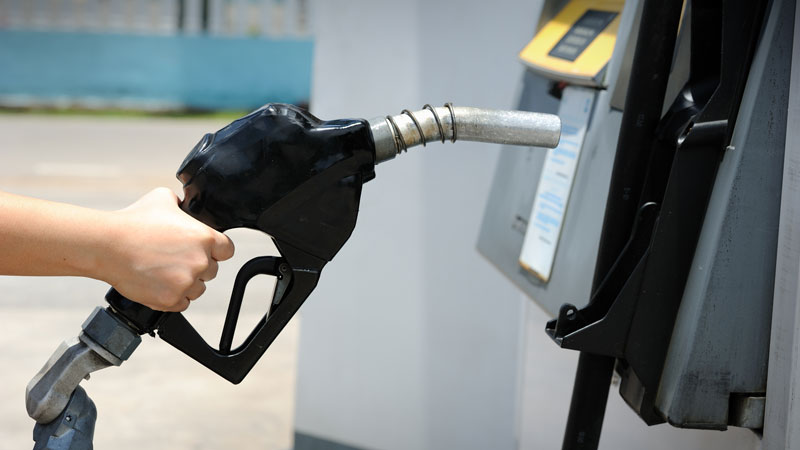Fuel quality is something that often slips under the radar for many car owners. It’s more than just filling the tank; it’s about ensuring that the fuel you’re using is clean, efficient, and suitable for your vehicle. When the gas in your tank goes bad, it can lead to a host of problems that range from minor inconveniences to expensive repairs. Understanding the signs of bad gas can save you time, money, and a great deal of frustration. Let’s delve into this essential, yet often overlooked, topic.
So, how do you know if you’ve inadvertently filled your tank with low-quality fuel? There are several symptoms that manifest themselves in various forms, and recognizing these signs early on can make a world of difference.
1. Difficulty Starting
One of the first indicators of bad gas is trouble starting your vehicle. If your engine cranks but doesn’t start promptly, it may be a symptom of contaminated fuel. Poor-quality gas can lead to improper combustion, which translates to a reluctant engine. If you’re experiencing this, step back and consider what has recently gone into your tank. A simple visit to the gas station may be the culprit.
2. Stalling and Hesitation
Imagine driving down the highway when suddenly your car starts to stall or hesitate. This can be alarming! Such behavior often signals that the engine isn’t receiving the necessary fuel needed for optimal performance. Bad gas can disrupt the flow of fuel and air to the engine, leading to a hesitating vehicle. If your car stutters unceremoniously, it’s time to assess your fuel quality.
3. Poor Acceleration
Have you noticed a sluggish response when you press the accelerator? This symptom might seem trivial at first. However, poor acceleration could be a minor indication that your gas isn’t at its best. When fuel quality is compromised, your engine may struggle to deliver power, leading to frustrating and slow acceleration. This is particularly noticeable in cars designed for performance; they keenly feel the effects of subpar fuel.
4. Unusual Engine Noise
Your engine should operate harmoniously, but bad gas can introduce irregularities. Experiencing knocking or pinging sounds? Those could be detonation noises, arising from improper fuel ignition due to low-quality gasoline. Such symptoms not only indicate that something is amiss but can also lead to long-term engine damage if left unchecked. These sounds are your engine’s way of crying for help.
5. Decreased Fuel Efficiency
No one enjoys watching the fuel gauge plummet at an alarming rate. If you’ve noticed that your car is consuming more fuel than usual, bad gas might be to blame. When fuel quality is poor, your engine may not operate at peak performance, causing it to require more gas to maintain the same level of efficiency. This is not only a strain on your wallet but also an inconvenience in daily driving.
6. Difficulty in Idling
If your vehicle has a troublesome time idling—whether it’s frequently stalling or wobbling—poor fuel quality could be to blame. Bad gas can affect the combustion process, leading to an unstable idle. This can be particularly frustrating, especially in stop-and-go traffic or when at a traffic light. Recognizing that the issue may stem from your fuel can lead to simple solutions.
7. Fuel Smell
A noticeable fuel smell emanating from your car should never be ignored. Sometimes this can be a sign of fuel leakage, but it can also indicate that the fuel quality is poor or contaminated. A stale or unusual odor from fuel may hint that it has gone bad, particularly if the fuel has been in your tank for an extended period. If this is experienced, immediate attention is warranted.
8. Presence of Sediment in the Fuel
Another often-overlooked sign of bad gas is the presence of sediment. This can be assessed by examining your fuel filter or fuel lines. Over time, inferior gasoline may lead to the accumulation of particulates that can obstruct proper fuel flow. Regular checks can prevent serious engine troubles down the line.
Recognizing these symptoms is merely the first step. Once you’ve identified potential bad gas, seeking an effective solution is imperative. Start by emptying the bad fuel from your tank as soon as possible. This should be done with care; a professional can help with fuel removal. Next, refill with high-quality gasoline from a reputable source. This may alleviate many of the symptoms you’ve encountered.
Prevention is Key!
Preventing bad gas from entering your vehicle is as crucial as recognizing its symptoms. Always opt for fuel from trusted stations with a high turnover. Moreover, filling your tank adequately prevents condensation, which can lead to moisture accumulation in the fuel system. Regular vehicle maintenance is also pivotal; it ensures that both the engine and the fuel system are clean and functioning optimally.
In conclusion, understanding fuel quality should be a priority for every car owner. The implications of poor fuel spread far beyond inconvenience. By staying attuned to the signs of bad gas, being proactive in your purchasing decisions, and maintaining your vehicle, you can enhance your driving experience significantly. Your car will thank you with smoother rides and a more reliable performance. Don’t let fuel quality be an afterthought; make it a central consideration in your vehicle care routine!
